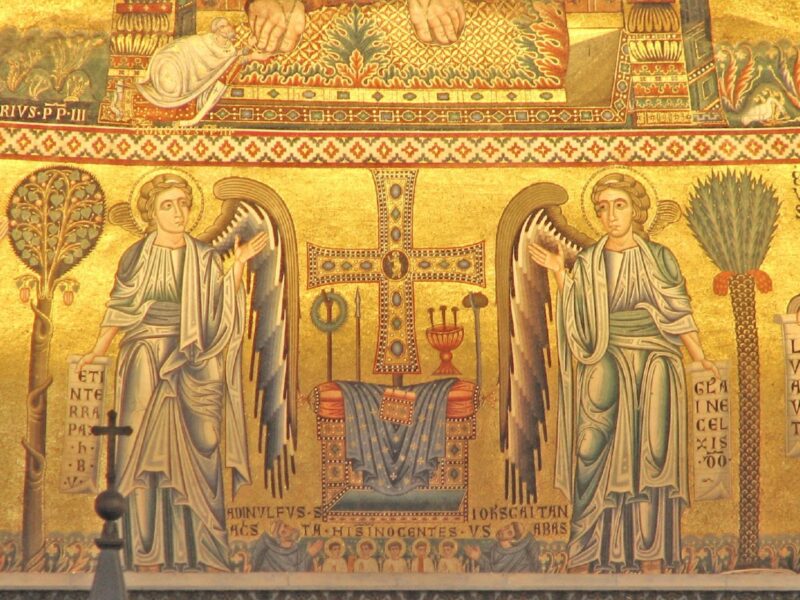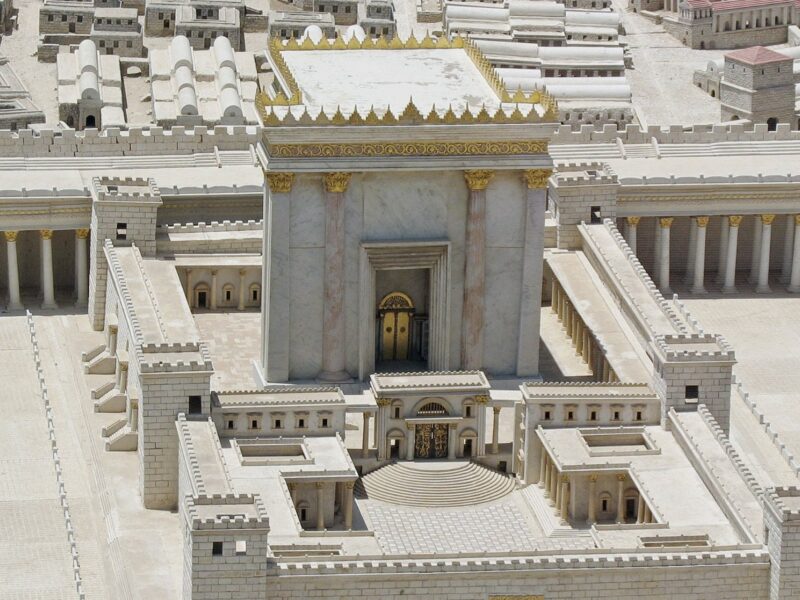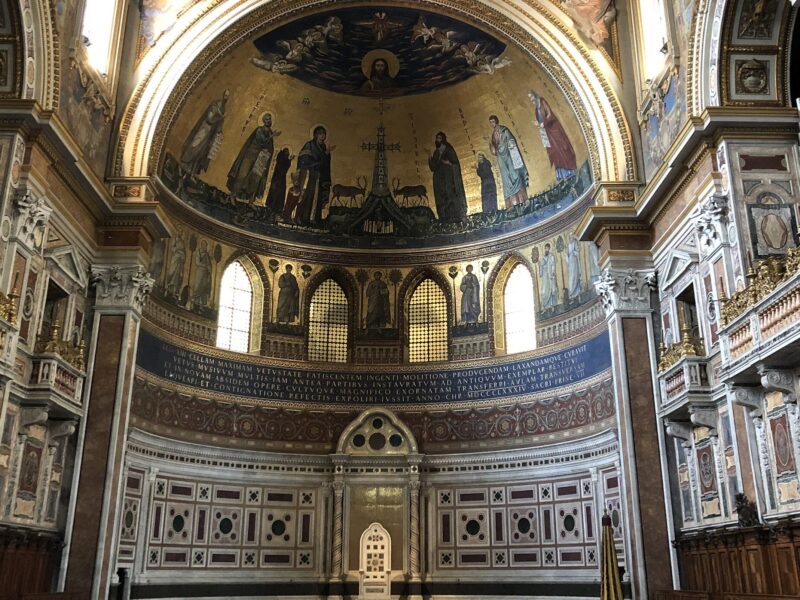
Transformation and Thanksgiving
Twenty-eighth Sunday of the Year. Fr Albert Robertson preaches about two grateful foreigners.
The editorial scissors have done their work on our First Reading. Fair enough, it is not terribly practical to have long readings all the time, but we lose something of the change in Naaman. On arrival it is noticeable that he does not enter into the house of Elisha. He halts at the door and Elisha’s servant Gehazi sends instructions to Naaman. Naaman is enraged: ‘Behold, I thought that he would surely come out to me, and stand, and call on the name of the Lord his God, and wave his hand over the place, and cure the leper’ (2 Kings, 5:11). The whole scene has something of the doesn’t he know who I am? about it, but also something of the magician too. Naaman clearly expects Elisha to work like the priests of Baal who work themselves up into an impotent frenzy on Mount Carmel, and were vanquished by Elisha’s master, Elijah.
The change in Naaman is quite clear when we have a little bit of context. Naaman’s dipping has brought about a change in him, not just a physical change — he has been cured —but a spiritual one. Cleansed, he is now able to enter the house of Elisha and stand before him. His once haughty demeanour is replaced by humility. His paganism replaced by worship of the one true God. No wonder, then, that we see the story of Naaman as a type of baptism, for as St Thomas reminds us, sacramental grace not only removes sin, but works to perfect the soul by conferring upon us the right and obligation to participate in the worship of the One True God (ST, III, 63, 5). Naaman is incredulous about the possibility of healing.
But this seems like a remarkably lofty thing for water to be able to achieve. Aren’t we perhaps a little scandalised like Naaman. We perhaps need to hear again that initial preaching of the power of baptism to forgive sins and impart the Holy Spirit (Acts, 2:38); that in baptism we have died with Christ and risen to new life with Him (Romans, 6:1-11); and that through baptism Jews and Greeks have been brought into one body (1 Corinthians, 12:12-13). How can water do such things? God does wonders through water, just as He does wonders through His Incarnate Son, who continues to work in us through the sacraments He has given to the Church. Just as the Cross is a stumbling block and a folly to those who are perishing, so too are those sacraments which derive their power from Christ’s Cross. They are of course a stumbling block to those who expect something rather grand, like Naaman expecting the waving of a hand over leprosy. The truth of the sacraments is that no matter how much we honour the sacramental moment with vestments and music (all important aspects of celebrating the sacraments with dignity), the sacraments are very simple gestures.
But what about us who have received the sacraments, those of us who continue to regularly receive the sacraments of Penance and Holy Communion? For us, perhaps, there is not just the risk of the incredulity of Naaman, but the ingratitude of the cured lepers in our Gospel Reading. Are we truly thankful? We are not told the fate of the ungrateful nine — did their cure reverse, just as Gehazi, the servant of Elisha is struck down with Naaman’s leprosy for his greed at the end of chapter five of 2 Kings? To a degree their fate is not the question, so much as the strong contrast which is drawn between them and the grateful Samaritan. A contrast heightened by the use of the word translated here as foreigner, but which is perhaps better thought of as stranger, and is the word used, according to Josephus, on signs in the Temple barring entrance to non-Jews. The fate of the other nine is inconsequential in the face of the truth that all ten might have been cured, but only one has been fully reconciled with God.
So what of us? Are we with the grateful few or the ungrateful multitude. For most of us likely a bit of both, the Lord’s steadfast faithfulness stands against our wavering faith. But one of the gifts given to us in that very simple Rite of Baptism, and which is renewed in us in each sacramental encounter, is precisely that gift of faith. Faith, along with Hope and Charity, the Theological Virtues, have God as their object, which is really a way of saying that they form us for our end in God. They are the way in which God, who is our end and goal, forms us for life with him. They are the way in which God’s faithfulness reaches into our lives and moulds us now. They help us to stand with the grateful, healed Samaritan.
Readings: 2 Kings 5:14-17 | 2 Timothy 2:8-13 | Luke 17:11-19
Image: from an altarpiece depicting Naaman the Syrian by Cornelis Engelbrechtsen, via Wikimedia Commons (CC BY 4.0)



Catherine Kirby
Many thanks for this. I never could understand further than the obvious-that we must see what God does for us and we need to be grateful. Thank you Father Albert!